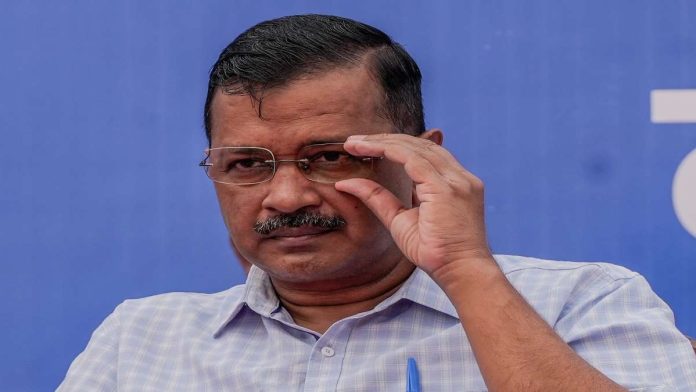A Delhi court on Friday granted the Enforcement Directorate (ED) six-day custody of Chief Minister Arvind Kejriwal in connection with the Delhi liquor policy scam case.
Special CBI judge Kaveri Baweja of the Rouse Avenue Courts sent Kejriwal to ED custody till March 28.
Appearing for the national agency, Additional Solicitor General SV Raju alleged that Kejriwal was the kingpin of the Delhi excise scam and was directly involved in the use of proceeds of crime accounting to over Rs 100 crore.
The ASG contended that even during the time of search last night, Kejriwal did not give correct facts.
The agency sought 10-day custody of the accused on the grounds that it needed confrontation to recover the money trail. It was a fit case to grant remand, said the ASG.
Three Senior Counsels- Abhishek Manu Singhvi, Vikram Chaudhary and Ramesh Gupta appeared for Kejriwal.
Singhvi submitted that till yesterday, in the proceedings before the High Court, ED did not disclose that Kejriwal was being probed as an accused in the case.
He submitted that the threshold for arrest under PMLA was very high.
Singhvi contended that ED failed to show the necessity to arrest the incumbent Chief Minister of the national capital, noting that there was no direct evidence.
The Enforcement Directorate (ED) had arrested the national convenor of the Aam Aadmi Party (AAP) on Thursday from his residence after interrogating him for over two hours.
Earlier on Thursday, a Division Bench of Justice Suresh Kumar Kait and Justice Manoj Jain of the Delhi High Court had refused to grant him interim protection from coercive action in the case.
Kejriwal moved the High Court challenging the summons issued to him by ED. He also filed an application seeking interim protection in the case.
The High Court has listed the case for hearing on April 22.
ED had earlier filed two criminal complaints against Kejriwal in the Rouse Avenue Court alleging non-compliance of the summons.
The national agency had issued nine summons to Kejriwal, who chose to skip them all.
Noting that Kejriwal’s plea for interim protection will be heard on April 22 with his main petition challenging ED’s summons, the High Court said that it was not inclined to grant any such protection at this stage.
The Division Bench observed that until and unless the Chief Minister appeared before ED, he would not be able to know what information the investigation agency wanted.
The High Court further said that if the AAP national convenor had apprehensions of being arrested while attending to the ED summons, he should have filed an anticipatory bail in the lower court.
The High Court then asked the ED as to what prevented it from arresting the Chief Minister.
The Division Bench made the observations on a petition filed by Kejriwal plea seeking direction to the agency not to take any coercive action against him on his appearance in lieu of the summons.
He also filed a separate petition seeking quashing of proceedings against him emanating out of the ECIR (enforcement case information report) registered by ED in the case.
He approached the High Court three days after getting bail by
Earlier on March 16, Additional Chief Metropolitan Magistrate (ACMM) Divya Malhotra granted Kejriwal bail in the case based on the complaints filed by the investigation agency against him for allegedly disobeying the summons.
Appearing for the Delhi Chief Minister, Senior Advocate Abhisekh Manu Singhvi submitted that the summons have been issued to the Chief Minister with an oblique motive to arrest and on the same day when schedule for the general elections was declared. The counsel argued that the summons did not specify the capacity in which his physical appearance has been sought and was devoid of material and questionnaire.
Representing the national agency, ASG Raju submitted that it had material to summon Kejriwal and was insisting on his physical presence in his individual capacity. He added that a person who flouted the law by skipping summons should not be heard entirely. He underlined that though the probe agency had the right to arrest, it never said that it would arrest the CM.


